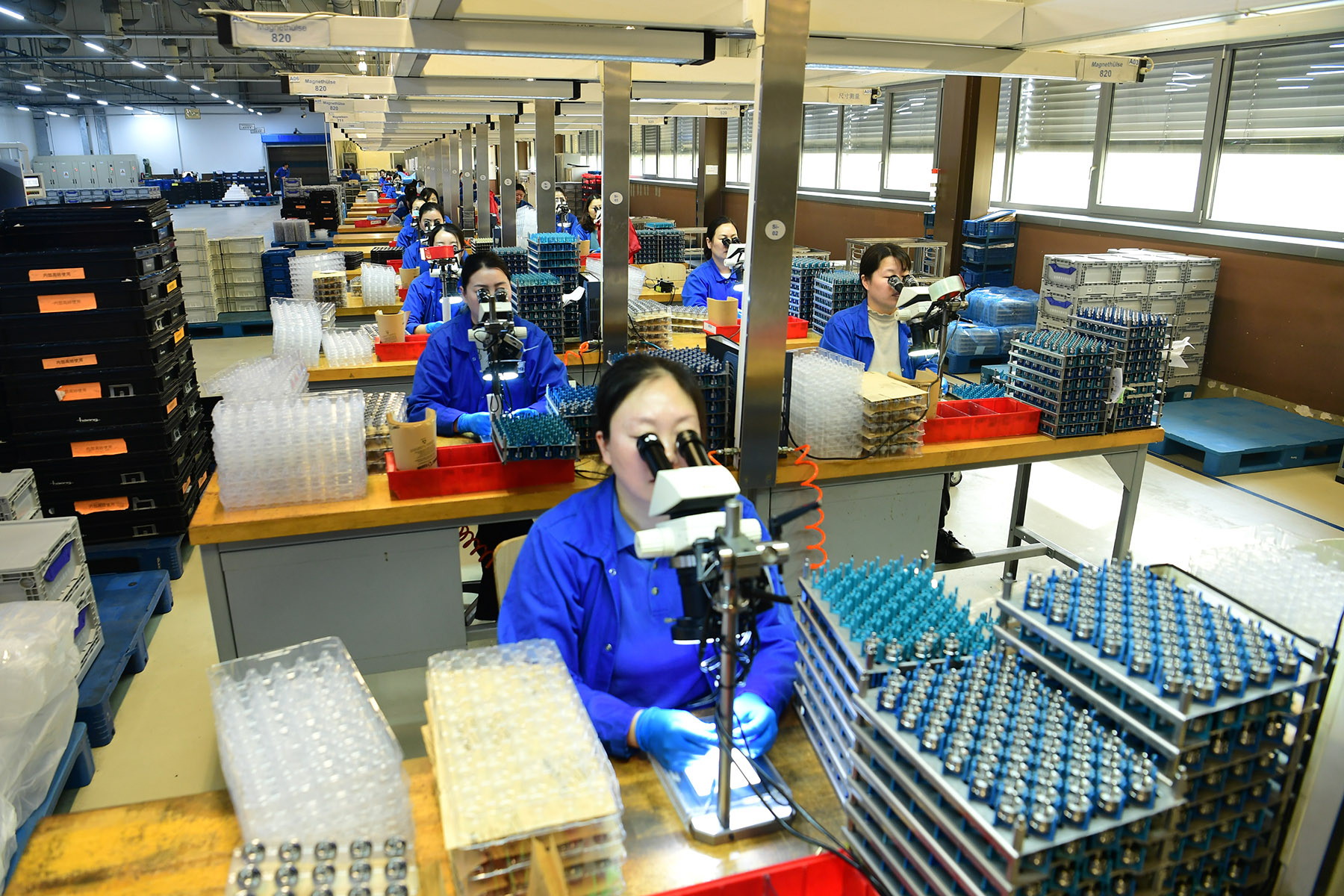
In Taicang, a county-level city in Suzhou, East China's Jiangsu province, runs the No 103 bus route. The route is peppered with stops that are mostly named after German companies, such as Krones, a leading beverage filling and packaging producer, and Trumpf, a machine tool maker.
Within a 4-kilometer radius of the Krones' stop, over 40 foreign-invested enterprises, mostly from Germany, have established operations. Over the past three decades, Taicang, at just 800 square kilometers and around 800,000 people, has gradually gathered more than 530 German enterprises in total, making it a true home for German businesses.
READ MORE: China to lift restrictions on foreign capital
These German firms, occupying just 0.24 percent of the city's land, have contributed about 8 percent of Taicang's GDP and 18 percent of its industrial output in recent years.
This success story of Taicang represents in part broader efforts by both Suzhou and Jiangsu to encourage foreign investment, create a high-level, open economy, as well as push for high-quality industrial development.
Amid rising global geopolitical uncertainties, the concentration of these firms has led to what can only be described as a two-way rush — German companies find fertile ground in China's industrial landscape while China doubles down on attracting top-tier foreign investment.
In January, Suzhou held a pivotal industrialization conference, reaffirming its commitment to becoming a "global leader in smart manufacturing". The city set its sights on ambitious goals, including surpassing 4.8 trillion yuan ($660 billion) in industrial output by 2025 and 10 percent annual growth in industrial investment.
This is also in line with China's goal of further deepening reforms comprehensively, expanding high-standard opening-up and building a modern industrial system, as proposed at the Central Economic Work Conference in December.
Liu Xiaotao, Party secretary of Suzhou, said: "Suzhou has a complete industrial system, abundant innovation resources, diverse application scenarios and an excellent business environment. In the face of new industrial and tech trends, as well as changes in the international environment, Suzhou has stronger competitive advantages and should boldly take on greater responsibilities."
At the forefront of this drive is Krones. Over the past 20 years, Krones Taicang has become a core supplier to China's leading beverage, dairy and condiment companies.
Last year, Krones doubled down on Taicang's potential by investing an additional 200 million euros ($206 million) to build a new factory in the city.
The new plant is expected to double production scale, personnel and output once it reaches its planned capacity.
For Krones — along with many other foreign firms — Suzhou's commitment to reform and industrialization has been a critical factor in this expansion.
In January, the Suzhou government announced new policies to support foreign-invested enterprises, including a maximum support of 10 million yuan in establishing corporate research institutes and increasing R&D investment in the city.
Also, the city also vowed tax breaks for foreign manufacturing enterprises reinvesting profits, further sweetening the deal for companies like Krones.
ALSO READ: Foreign investment upgrades amid transformation
At a separate conference meeting with German companies, Liu said cooperation between Suzhou and Germany has a solid foundation and abundant opportunities for growth, adding that as Suzhou advances new industrialization, the city looks forward to further strengthening ties with German companies.
"Suzhou will also continue to expand high-standard opening-up and actively create a first-class business environment to offer favorable conditions for German enterprises to thrive," he said.
This "win-win" dynamic has only grown stronger. In early February, Standard Foods, previously known as Quaker from United States — which manufactures and sells nutritious foodstuffs — set up a $70 million project in Taicang.
Focused on creating an intelligent digital supply chain for high-end edible oils, the project promises to generate 800 million yuan in annual output once it reaches full production.
Lin Zhihong, general manager of Standard Foods' supply chain center in China, said that the company is confident about the city's development and is willing to deepen cooperation with Taicang to better achieve mutual benefits and win-win results.
Contact the writers at chengyu@chinadaily.com.cn


